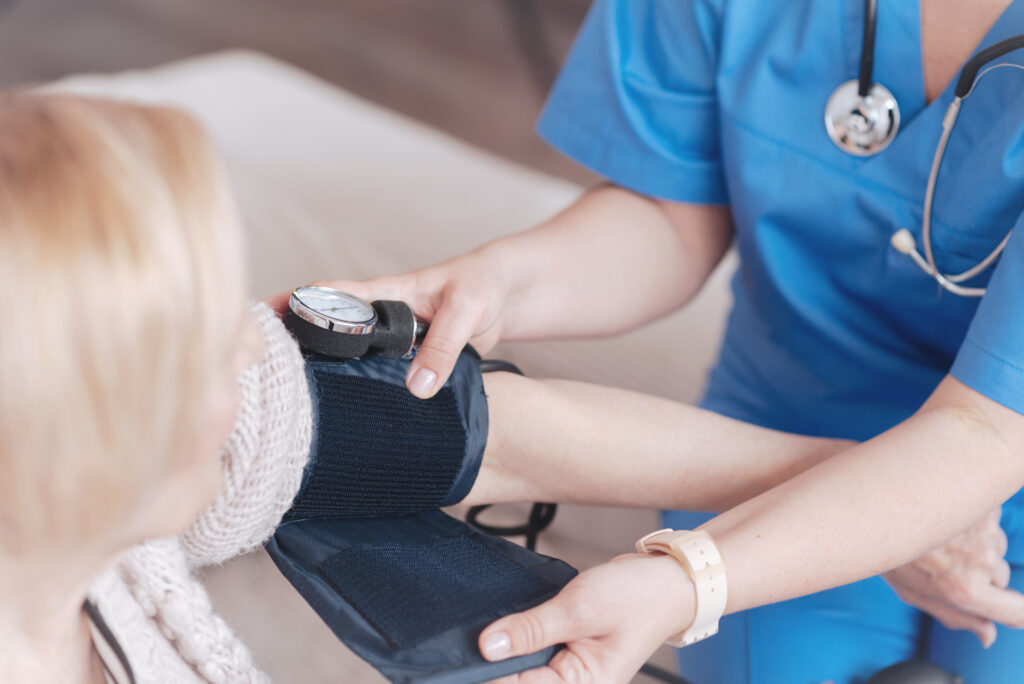
Blood pressure is often called the silent killer because it rarely shows symptoms. But if left untreated, it can lead to heart attack, stroke and kidney failure.
While medications are sometimes needed, there are also many home remedies that can help reduce your blood pressure. These include dietary changes, stress relievers and natural supplements.
1. Carrots
Carrots are rich in phenolic compounds that have been shown to reduce inflammation and relax blood vessels. They are also a good source of potassium, which is an important mineral for helping to lower blood pressure. Try them in a salad or snack on raw carrots throughout the day!
Leafy greens are high in potassium, magnesium and calcium as well as nitrates, which help to lower hypertension. Add a serving to your breakfast omelet, lunch salad or mixed in with other veggies for dinner!
Studies show that sitting for long periods of time can raise your blood pressure. Try to break up your sedentary hours by moving around or standing every 20-30 minutes.
2. Garlic
A daily dose of garlic helps lower blood pressure. Its nitric oxide-boosting properties help reduce stiffness in the arteries, which helps your body take in more oxygen.
The volatile compounds in garlic (allylalcohol, allylthiol, and allylpropyl disulphide) help reduce blood pressure by vasodilating your blood vessels. They also prevent oxidation of cholesterol and increase good cholesterol.
Consuming ten to twelve peeled and minced cloves of raw garlic every morning helps reduce high blood pressure. You can also drink garlic milk by adding it to a glass of warm milk.
3. Raisins
Raisins, or kishmish, are one of the best natural remedies for hypertension as they are rich in potassium. They help to keep blood pressure levels under control by supporting the functioning of the adrenal glands. Soak around 30-40 raisins in a cup of water overnight and consume them on an empty stomach the next morning for noticeable results.
This is because the fruit contains a high amount of fibre, polyphenols, phenolic acid and tannins which are known to lower systolic BP and diastolic BP. Additionally, it is high in potassium and according to the medical website Healthline, just a handful of raisins contains 1 gram of fibre and 212 milligrams of potassium.
4. Beets
The common red beet is a superfood with benefits that include heart disease risk reduction, endurance improvement and high levels of vitamin C, folate and potassium. Studies show that drinking a cup of beet juice daily can lower systolic blood pressure for people with hypertension.
Nitrates in beets are converted to nitric oxide to improve blood flow and reduce high blood pressure. Add beets to salads or drink the juice. Seeds like chia seeds and flaxseed are also rich in magnesium, another mineral that helps to lower blood pressure, Thomsen Ferreira says. Add them to smoothies, a bowl of oatmeal or a handful as a snack.
5. Sunflower seeds
Sunflower seeds (Helianthus annuus) are rich in vitamin E, the body’s primary fat-soluble antioxidant. This vitamin helps neutralize free radicals that can damage fat-containing structures and molecules like cell membranes, brain cells and cholesterol.
They also contain a good amount of potassium, which can help lower blood pressure. To get the most benefit, eat sunflower seeds raw or roasted and include them in salads, bars, bowls and breakfast cereals.
Limit salt in your diet by avoiding processed foods, chips, French fries and store-bought salad dressings. Exercise, too, helps lower and maintain blood pressure.
6. Beans
Green tea is one of the most effective natural home remedies for high blood pressure. It contains polyphenols that regulate blood pressure without causing hypotension or increasing heart rate.
Beans are rich in potassium, calcium and fiber and naturally low in sodium. Add beans to soups, salads or chilli’s to boost your fibre and protein intake.
Leafy greens such as spinach, swiss chard, kale, collards and bok choy offer the same blood pressure-lowering benefits as oats thanks to their soluble fibre. They help flush sodium from the body and relax blood vessel walls.
7. Egg whites
Egg whites are a common ingredient in many meals and provide a good source of protein. Eggs got a bad rap because of the cholesterol in the yolk, but research has found that eating only egg whites can help reduce blood pressure.
Eggs contain a compound called RVPSL that has been shown to lower blood pressure in animal studies. Researchers found that giving rats RVPSL reduced their blood pressure as much as a low dose of the medication Captopril.
Mackerel is another fatty fish that can help reduce blood pressure. Mackerel is high in omega-3 fatty acids and can be eaten on its own or added to salads or avocado for a rounded meal.